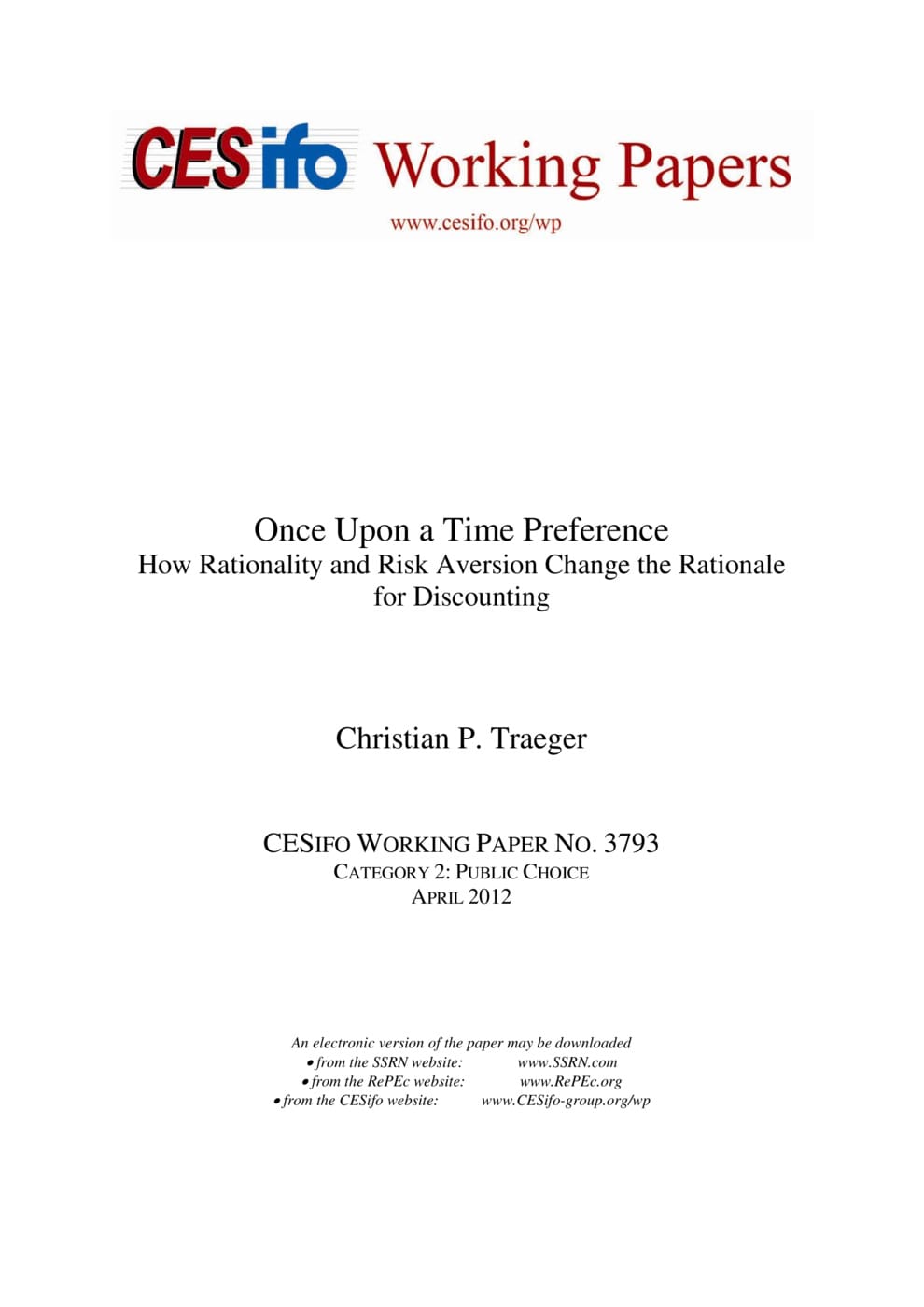Once Upon a Time Preference - How Rationality and Risk Aversion Change the Rationale for Discounting
CESifo, Munich, 2012
CESifo Working Paper No. 3793

The paper develops an axiomatic framework for rational decision making. The von Neumann-Morgenstern axioms give rise to a richer risk attitude than that captured in the standard discounted expected utility model. I derive three models that permit a more comprehensive risk evaluation. These preference representations differ regarding the consistency requirements that are imposed in the evaluation of uncertain scenarios. Imposing all rationality constraints jointly eliminates pure time preference from economic evaluation. The resulting preference representation still gives reduced weight to expected future utility when uncertainty increases over time. The more we know about the future welfare consequences of our (in)actions, the more weight they receive. If uncertainty is endogenous to the decision process, the new rationale for discounting will yield quite different policy implications than the discounted expected utility model based on pure time preference.
Public Choice
Energy and Climate Economics